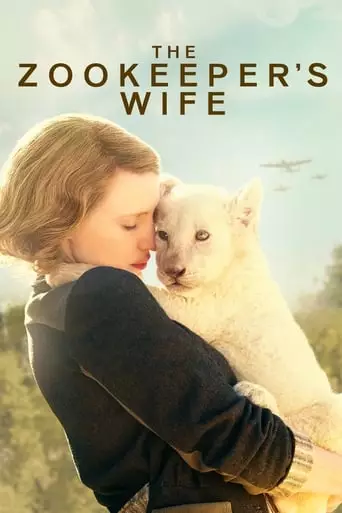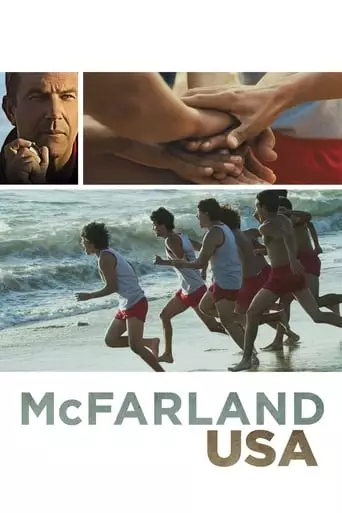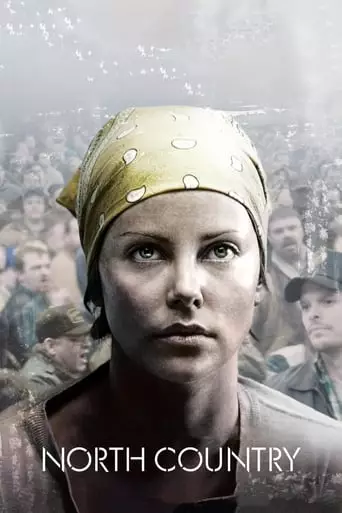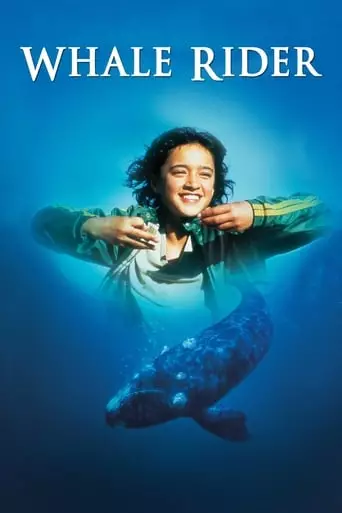A deadly female assassin comes out of hiding to protect the daughter that she gave up years before, while on the run from dangerous men. The Mother (2023) is an […]

A deadly female assassin comes out of hiding to protect the daughter that she gave up years before, while on the run from dangerous men. The Mother (2023) is an […]

The account of keepers of the Warsaw Zoo, Jan and Antonina Zabinski, who helped save hundreds of people and animals during the Nazi invasion. The Zookeeper’s Wife is a historical […]

A track coach in a small California town transforms a team of athletes into championship contenders. McFarland, USA is a 2015 sports drama directed by Niki Caro, based on the […]

A fictionalized account of the first major successful sexual harassment case in the United States — Jenson vs. Eveleth Mines, where a woman who endured a range of abuse while […]

On the east coast of New Zealand, the Whangara people believe their presence there dates back a thousand years or more to a single ancestor, Paikea, who escaped death when […]
Niki Caro: A Visionary Filmmaker Bridging Cultures and Emotions
Niki Caro is a distinguished New Zealand filmmaker known for her ability to craft deeply emotional narratives that celebrate resilience, culture, and the human spirit. With a career spanning over two decades, Caro has made her mark in international cinema through films like Whale Rider (2002), North Country (2005), and Disney’s live-action adaptation of Mulan (2020). Her storytelling is characterized by its visual elegance, cultural sensitivity, and focus on strong, complex characters.
Early Life and Education
Born on September 20, 1967, in Wellington, New Zealand, Niki Caro grew up with a passion for art and storytelling. She initially studied art and design at Elam School of Fine Arts in Auckland, where she earned a degree in sculpture. Her transition to filmmaking came as she sought a medium that could combine her visual artistry with narrative storytelling.
Caro pursued further education in filmmaking at Swinburne Film and Television School in Melbourne, Australia. This formal training laid the foundation for her unique cinematic style, blending visual beauty with emotionally charged storytelling.
Breakthrough with Whale Rider
Caro gained international acclaim with her second feature film, Whale Rider (2002), based on Witi Ihimaera’s novel. The film tells the story of Pai, a young Māori girl who challenges tradition to become the leader of her tribe.
Critical Acclaim: Whale Rider was universally praised for its heartfelt narrative and cultural authenticity.
Awards and Recognition: The film received numerous accolades, including an Academy Award nomination for Keisha Castle-Hughes as Best Actress.
Cultural Impact: Whale Rider brought Māori culture to a global audience and remains a landmark in New Zealand cinema.
Caro’s direction was lauded for its sensitivity and respect for Māori traditions, as well as its powerful portrayal of a young girl’s struggle for acceptance and leadership.
Tackling Social Issues: North Country
In 2005, Caro directed North Country, a drama inspired by the true story of the first major sexual harassment lawsuit in the United States. Starring Charlize Theron as a miner fighting for justice, the film tackled issues of gender inequality and workplace abuse.
Critical Reception: The film received praise for its compelling performances and unflinching portrayal of systemic injustice.
Awards: Charlize Theron and Frances McDormand earned Academy Award nominations for their roles.
North Country cemented Caro’s reputation as a filmmaker unafraid to address challenging and socially relevant topics.
Expanding Horizons: Mulan
Caro’s career reached new heights with Disney’s live-action adaptation of Mulan (2020). The film reimagines the legendary Chinese heroine who disguises herself as a man to save her family and country.
Visual Spectacle: Caro’s direction emphasized epic battle sequences and breathtaking landscapes, creating a visually stunning experience.
Cultural Sensitivity: Although the film faced some criticism, Caro worked closely with consultants to ensure respect for Chinese culture and history.
Breaking Barriers: Caro became one of the few women to direct a blockbuster with a budget exceeding $200 million, paving the way for greater gender representation in large-scale filmmaking.
Other Notable Works
The Zookeeper’s Wife (2017)
This historical drama, starring Jessica Chastain, tells the true story of Antonina Żabińska, who helped save hundreds of Jews during World War II by hiding them in her zoo.
Emotional Depth: Caro’s direction highlighted the courage and compassion of ordinary people in extraordinary circumstances.
A Heavenly Vintage (2009)
Also known as The Vintner’s Luck, this romantic drama explores themes of ambition, love, and spirituality through the story of a 19th-century winemaker.
Hallmarks of Caro’s Filmmaking
Niki Caro’s films are defined by their emotional resonance, cultural authenticity, and visual artistry. Key elements of her style include:
Strong Female Protagonists: From Pai in Whale Rider to Mulan, Caro’s characters often defy societal expectations to find their strength and voice.
Cultural Sensitivity: Caro’s commitment to representing diverse cultures with respect and authenticity sets her work apart.
Visual Storytelling: Her background in fine arts informs her films’ stunning cinematography and composition.
Legacy and Influence
Niki Caro has become a trailblazer for women in filmmaking, especially in genres traditionally dominated by men. Her ability to balance intimate, character-driven stories with larger social and cultural themes has earned her a place among the most respected directors in contemporary cinema.
Her success with Mulan has opened doors for women directors in the blockbuster arena, while her earlier works like Whale Rider continue to inspire filmmakers to tell stories that celebrate cultural diversity and resilience.
Conclusion
Niki Caro’s career is a testament to the power of storytelling to bridge cultures and evoke empathy. From the shores of New Zealand to the grandeur of ancient China, her films have touched hearts and minds around the world. As she continues to explore new narratives and push boundaries, Caro’s work remains a beacon of inspiration in the world of cinema.